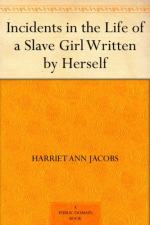I could tell of more slaveholders as cruel as those I have described. They are not exceptions to the general rule. I do not say there are no humane slaveholders. Such characters do exist, notwithstanding the hardening influences around them. But they are “like angels’ visits—few and far between.”
I knew a young lady who was one of these rare specimens. She was an orphan, and inherited as slaves a woman and her six children. Their father was a free man. They had a comfortable home of their own, parents and children living together. The mother and eldest daughter served their mistress during the day, and at night returned to their dwelling, which was on the premises. The young lady was very pious, and there was some reality in her religion. She taught her slaves to lead pure lives, and wished them to enjoy the fruit of their own industry. Her religion was not a garb put on for Sunday, and laid aside till Sunday returned again. The eldest daughter of the slave mother was promised in marriage to a free man; and the day before the wedding this good mistress emancipated her, in order that her marriage might have the sanction of law.
Report said that this young lady cherished an unrequited affection for a man who had resolved to marry for wealth. In the course of time a rich uncle of hers died. He left six thousand dollars to his two sons by a colored woman, and the remainder of his property to this orphan niece. The metal soon attracted the magnet. The lady and her weighty purse became his. She offered to manumit her slaves—telling them that her marriage might make unexpected changes in their destiny, and she wished to insure their happiness. They refused to take their freedom, saying that she had always been their best friend, and they could not be so happy any where as with her. I was not surprised. I had often seen them in their comfortable home, and thought that the whole town did not contain a happier family. They had never felt slavery; and, when it was too late, they were convinced of its reality.




